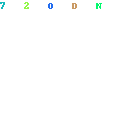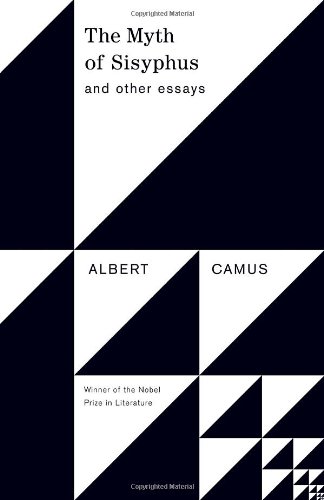Finding your suitable nausea sartre is not easy. You may need consider between hundred or thousand products from many store. In this article, we make a short list of the best nausea sartre including detail information and customer reviews. Let’s find out which is your favorite one.
Reviews
1. Nausea: The Wall and Other Stories
Feature
Used Book in Good ConditionDescription
Book by Sartre, Jean-Paul2. La Nausee (Folio) (French Edition)
Feature
Used Book in Good ConditionDescription
Nausea is the story of Antoine Roquentin, a French writer who is horrified at his own existence. In impressionistic, diary form he ruthlessly catalogs his every feeling and sensation. His thoughts culminate in a pervasive, overpowering feeling of nausea which spreads at the bottom of the viscous puddle, at the bottom of our time the time of purple suspenders and broken chair seats; it is made of wide, soft instants, spreading at the edge, like an oil stain.
Winner of the 1964 Nobel Prize in Literature (though he declined to accept it), Jean-Paul Sartre, philosopher, critic, novelist, and dramatist, holds a position of singular eminence in the world of French letters. La Naus e, his first and best novel, is a landmark in Existential fiction and a key work of the twentieth century.
3. Nausea (Penguin Modern Classics)
Feature
PENGUIN GROUPDescription
Jean-Paul Sartre's first published novel, Nausea is both an extended essay on existentialist ideals, and a profound fictional exploration of a man struggling to restore a sense of meaning to his life. This Penguin Modern Classics edition is translated from the French by Robert Baldick with an introduction by James Wood. Nausea is both the story of the troubled life of an introspective historian, Antoine Roquentin, and an exposition of one of the most influential and significant philosophical attitudes of modern times - existentialism. The book chronicles his struggle with the realisation that he is an entirely free agent in a world devoid of meaning; a world in which he must find his own purpose and then take total responsibility for his choices. A seminal work of contemporary literary philosophy, Nausea evokes and examines the dizzying angst that can come from simply trying to live. Jean-Paul Sartre (1905-1980) was an iconoclastic French philosopher, novelist, playwright and, widely regarded as the central figure in post-war European culture and political thinking. Sartre famously refused the Nobel Prize for literature in 1964 on the grounds that 'a writer should not allow himself to be turned into an institution'. His most well-known works, all of which are published by Penguin, include The Age of Reason, Nausea and Iron in the Soul. If you enjoyed Nausea, you might like Albert Camus' The Outsider, also available in Penguin Modern Classics. 'One of the very few successful members of the genre "Philosophical Novel" ... a young man's tour de force' Iris Murdoch4. Existentialism Is a Humanism
Feature
Yale University PressDescription
The idea of freedom occupies the center of Sartres doctrine. Man, born into an empty, godless universe, is nothing to begin with. He creates his essencehis self, his beingthrough the choices he freely makes (existence precedes essence). Were it not for the contingency of his death, he would never end. Choosing to be this or that is to affirm the value of what we choose. In choosing, therefore, we commit not only ourselves but all of mankind.
5. The Stranger
Feature
VintageDescription
Shows some signs of wear, and may have some markings on the inside. 100% Money Back Guarantee.6. Nausea (New Directions Paperbook)
Feature
NauseaDescription
Sartre's greatest novel and existentialism's key text now introduced by James Wood.
Nausea is the story of Antoine Roquentin, a French writer who is horrified at his own existence. In impressionistic, diary form he ruthlessly catalogs his every feeling and sensation. His thoughts culminate in a pervasive, overpowering feeling of nausea which spreads at the bottom of the viscous puddle, at the bottom of our time the time of purple suspenders and broken chair seats; it is made of wide, soft instants, spreading at the edge, like an oil stain.
Winner of the 1964 Nobel Prize in Literature (though he declined to accept it), Jean-Paul Sartre philosopher, critic, novelist, and dramatist holds a position of singular eminence in the world of French letters. La Nause, his first and best novel, is a landmark in Existential fiction and a key work of the twentieth century.
7. The Myth of Sisyphus and Other Essays
Feature
Great product!Description
One of the most influential works of this century, The Myth of Sisyphus and Other Essays is a crucial exposition of existentialist thought. Influenced by works such as Don Juan and the novels of Kafka, these essays begin with a meditation on suicide; the question of living or not living in a universe devoid of order or meaning. With lyric eloquence, Albert Camus brilliantly posits a way out of despair, reaffirming the value of personal existence, and the possibility of life lived with dignity and authenticity.8. Being and Nothingness
Feature
Used Book in Good ConditionDescription
Born in Paris in 1905, Sartre was a professor of philosophy when he joined the French Army at the outbreak of World War II. Captured by the Germans, he was released, after nearly a year, in 1941. He immediately joined the French resistance as a journalist. In the postwar era Jean-Paul Sartre - philosopher, critic, novelist, and dramatist - became one of the most influential men of this century. He died in Paris in 1980.9. La Nausea (Spanish Edition)
Feature
La NauseaDescription
El protagonista es Antoine Roquentin, hombre soltero de alrededor de treinta aos. Vive solo en Bouville. Trabaja meticulosamente en una obra sobre la vida del Marqus de Rollebon, un aristcrata de fines del siglo XVIII. No tiene profesin y vive de sus rentas, luego de haber abandonado un empleo en Indochina, por haberse cansado de viajar y por haber dejado de sentir tal empeo como aventura deseable.10. Nausea by Jean-Paul Sartre (Book Analysis): Detailed Summary, Analysis And Reading Guide
Description
Unlock the more straightforward side of Nausea with this concise and insightful summary and analysis!This engaging summary presents an analysis of Nausea by Jean-Paul Sartre, which follows one man as he becomes truly aware of the existence of the world around him and grapples with the rising sense of panic this causes. This realisation leads him to abandon the historical biography he is working on and embrace fiction instead, as a way of freeing himself from his nausea. This highly original book, which is one of the classic works of existentialism, combines elements of the essay and the novel as a way of transmitting the author's philosophical ideas. Jean-Paul Sartre was a French writer, philosopher and political activist. He was a leading figure in the existentialist philosophical movement, and participated in the French Resistance during the Second World War. In 1964, he became the first person to ever turn down a Nobel Prize.
Find out everything you need to know about Nausea in a fraction of the time!
This in-depth and informative reading guide brings you:
* A complete plot summary
* Character studies
* Key themes and symbols
* Questions for further reflection
Why choose BrightSummaries.com?
Available in print and digital format, our publications are designed to accompany you on your reading journey. The clear and concise style makes for easy understanding, providing the perfect opportunity to improve your literary knowledge in no time.
See the very best of literature in a whole new light with BrightSummaries.com!










